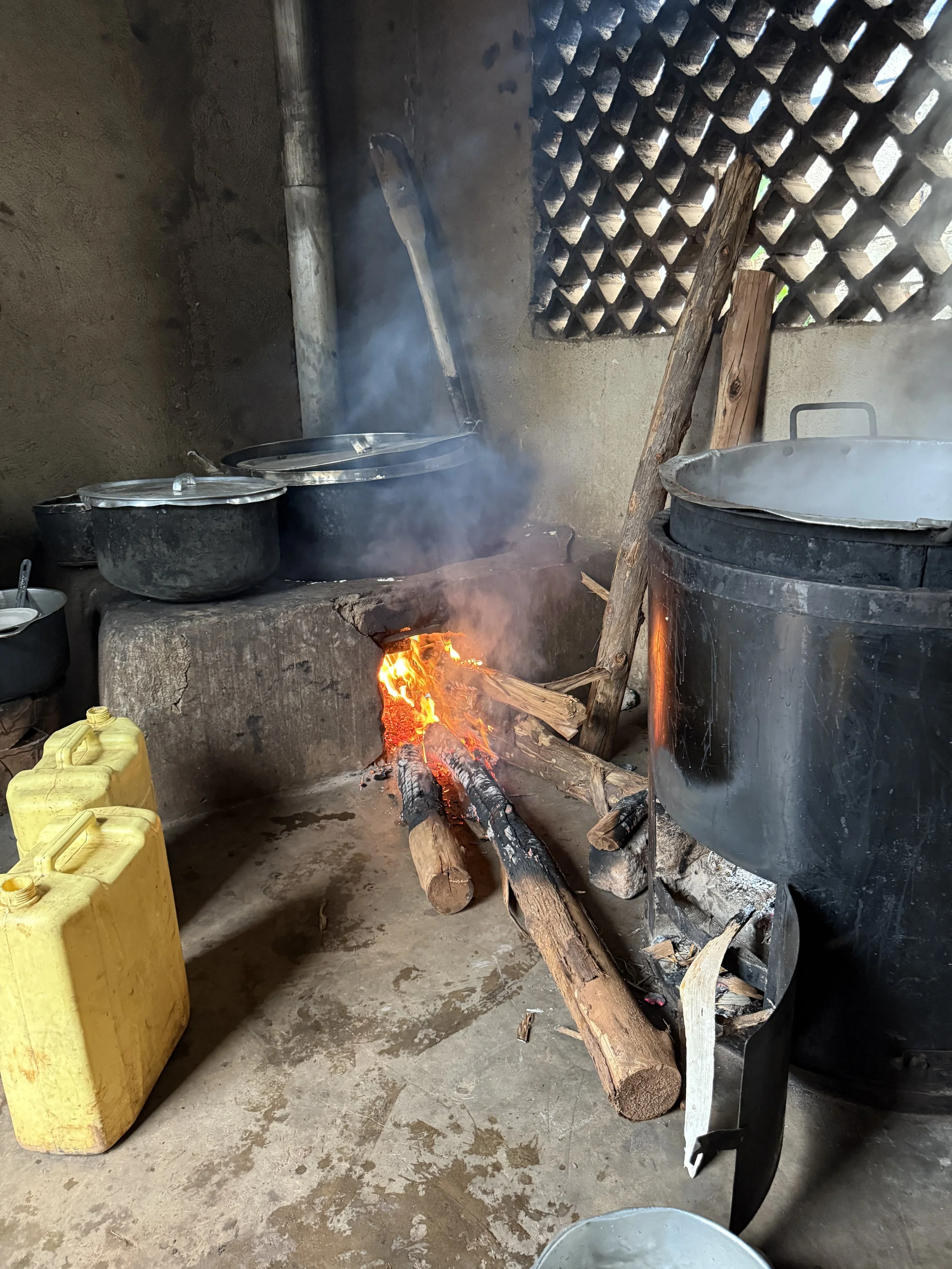Our registered carbon project has been closing, for the past 8 years, its monitoring periods on every 31st of December, to account for a full year of activities. These activities are externally audited by the approved Gold Standard auditor. Many indicators are collected throughout the year, and a minimum of 6 visits are conducted at each participating school under the Project Activity.
During 2024, 115 schools in Uganda reduced 13,253 tons of carbon dioxide from their daily cooking activities, as they moved away from traditional 3-stone fire places, to 451 energy efficient institutional improved cook stoves (IICS) of different saucepan capacities (ranging from 30 litres to 450 litres saucepans).
From these 115 schools, 22,754 were children in boarding modality, and 83,126 were day scholars, teachers and school staff, making a total of 105,880 individuals that enjoyed a healthier school environment.
The schools achieved an average of 50% reduction in firewood consumption when moving away from their old cooking practices, which translated into 130,787,333 Ugandan shillings (USD 35,832) saved from firewood not purchased. This is the equivalent of 16,258 tons of firewood not consumed.
Throughout the year, we repaired all the IICS to ensure the maximum savings for the schools and the cleanest combustion was achieved. Therefore, we spent 62,437,000 Ugandan shillings (USD 17,100) as part of Simoshi’s commitment to provide free maintenance to all schools for a 10-year period.
Fantastic achievements galore and we cannot stop enumerating good news! We continuously trained 400 Kitchen staff, out of which 139 were ladies, and conducted 814 training sessions to every participating school, on the best firewood management practices, and the effective use of the IICS to achieve the best clean kitchen environment. Our Project Officers also conducted 825 kitchen assessments to align those best practices to the kitchen infrastructure.




































